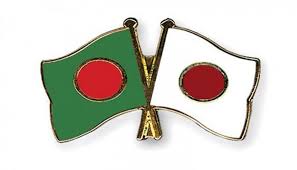Formal negotiations for an EPA between Bangladesh and Japan for a post-LDC 2026.
Summary
In order to secure the continuation of duty-free export facilities after Bangladesh leaves the list of least developed countries, and to attract more investment from the world’s fourth-largest economy, Japan and Bangladesh have decided to formally start negotiations for the signing of an Economic Partnership Agreement (EPA) by 2026. In an effort to sign the EPA, Bangladesh and Japan jointly performed a study that identified 17 industries as having breadth and coverage.
Context
The decision has been made to begin discussions for the Japan-Bangladesh Economic Partnership Agreement (EPA) by the governments of the People’s Republic of Bangladesh and Japan. The recommendation in the report of the Joint Study Group on the Possibility of an EPA between Japan and Bangladesh, which was published in December 2023 and summarizes the deliberations and conclusions of the 2023 Joint Study Group meeting, serves as the foundation for the decision. The conclusion of a comprehensive and high-level EPA between Japan and Bangladesh will contribute to the strengthening of economic relations, including the expansion of trade and investment between the two countries, so the report advises that the negotiations for an EPA be started. At present there are around 350 Japanese companies and farms doing business in Bangladesh. If Bangladesh and Japan were to sign an EPA, Bangladesh would continue to have duty-free access to the Japanese market after becoming a developing nation in 2026. Bangladesh is actively pursuing the EPA in order to guarantee continuous trade gains. This will maintain its competitive advantage in the international market and support its export-oriented economy. The first meeting of negotiation for the EPA took place on May 19, 2024 where Iwama Kiminori, the Japanese ambassador to Bangladesh, took part in the opening session alongside Ahasanul Islam Titu, the state minister for Commerce of Bangladesh. Japan is a major trading partner of Bangladesh and also a source of direct foreign investment. The two-way trade of Japan and Bangladesh stands at around 4 billion US Dollars. Underscoring the EPA’s criticality, Senior Commerce Secretary Tapan Kanti Ghosh emphasized that Bangladesh would face import duties exceeding 18 percent on exported goods after 2026 without the agreement, and stressed the urgency and significance of securing this agreement to protect Bangladesh’s economic well-being. The EPA will encompass a broad scope, including trade and customs matters, services export, investment, trade facilitation, and intellectual property. It will address the concerns of Japanese investors, fostering a more favorable environment for foreign investment and industrial growth. This trade deal with Japan represents Bangladesh’s determination to negotiate the complexities of global trade dynamics and obtain favorable conditions that will produce long-term economic gains.
Picture and Article Source: NewAge BD and The Daily Star


Leave a Reply